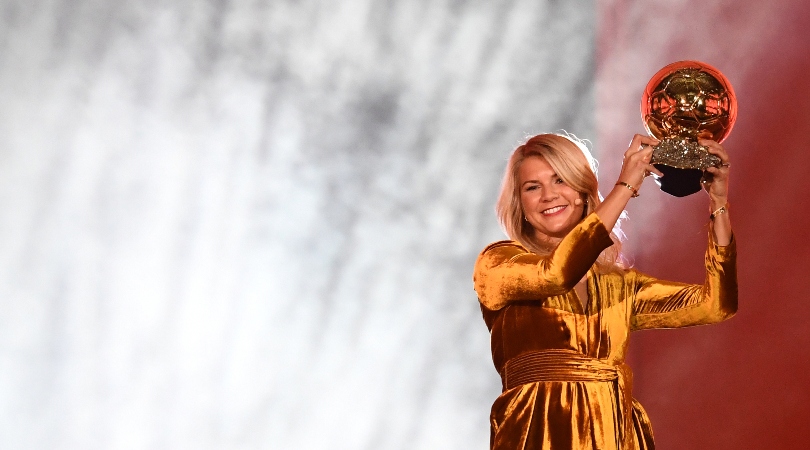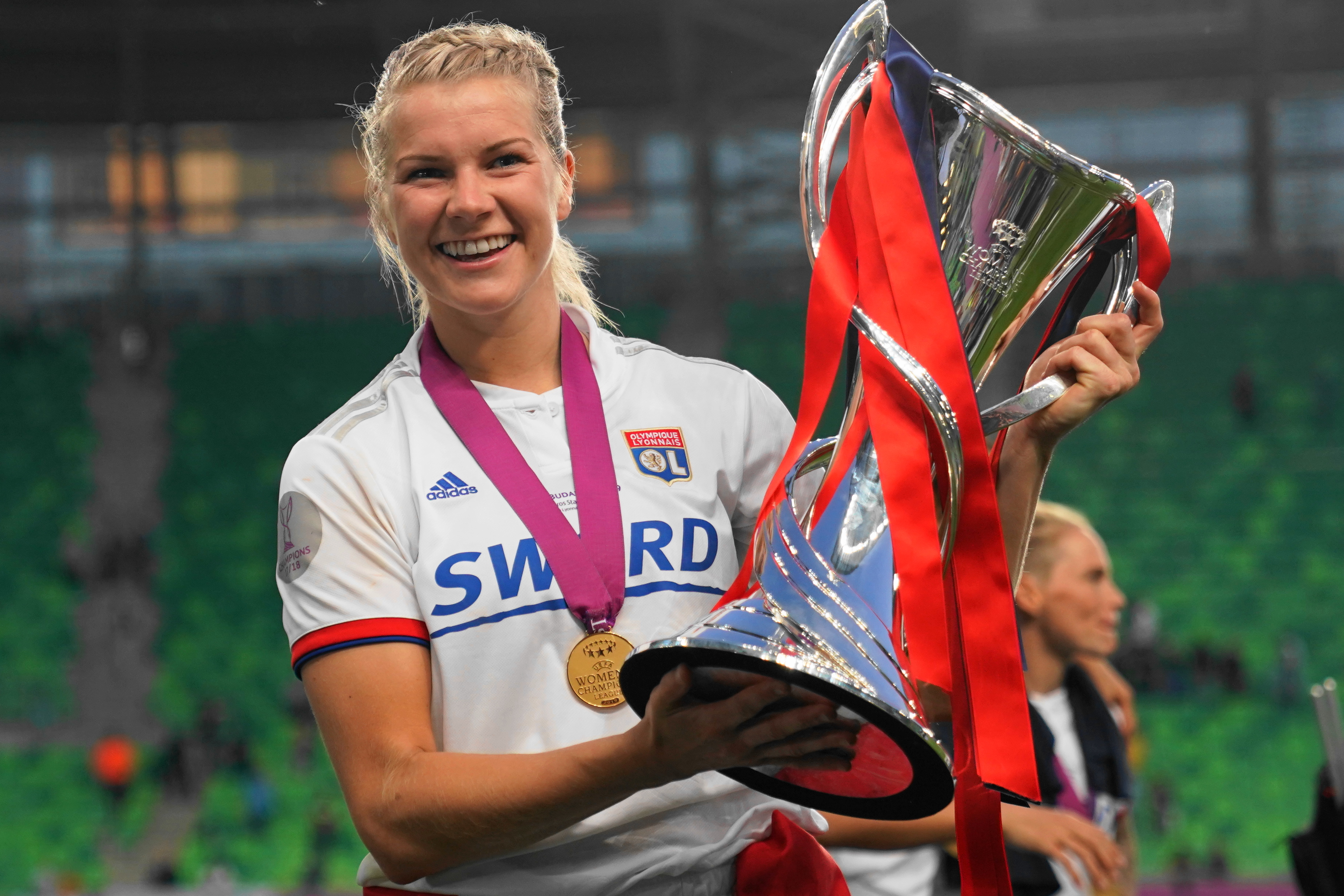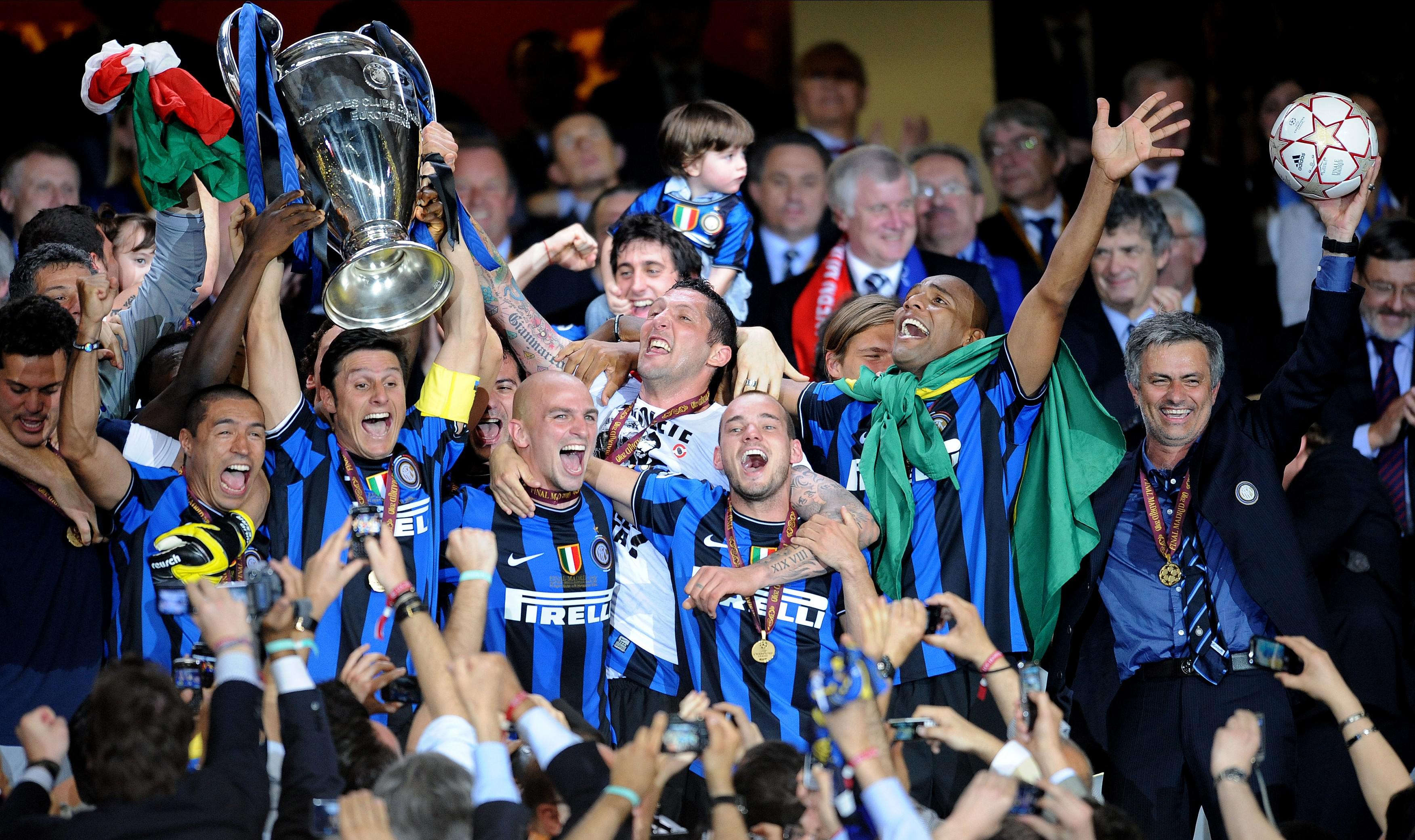"It feels incredibly good to be back": Why Ballon d'Or winner Ada Hegerberg returned to play for Norway at Euro 2022
Norway star Ada Hegerberg refused to play for the national team for four years, unhappy with the treatment of the women's side. Now she's back, and one of the best players in the world...

Ada Hegerberg had a relatively nomadic childhood in her native Norway. Born in Molde, Hegerberg’s family moved to Sunndalsøra when she was small. Ada and her sister, Andrine, played for Sunndal Football until the family relocated again in 2007 when Ada was 12. They moved to Kolbotn where the sisters were enlisted by local side Kolbotn IL.
Ada’s sister, Andrine, has a decorated football career of her own, having played for Kolbotn IL, Stabæk and Turbine Potsdam together before their careers separated. Andrine has since played for Kopparbergs (now known as Häcken) in Sweden, Birmingham City, PSG and Roma, before returning to Häcken earlier this year.
While Andrine, two years’ Ada’s senior, deserves to have her career recognised in its own right, she also forms a significant part of Ada’s story. The two sisters played football together constantly. As they moved from different areas of Norway, joining the local football team was among their first priorities.
Crucially, this also meant that Ada was getting used to playing football with older kids, which included her sister. “We’ve always been tough with each other, direct and honest – that’s the kind of relationship we have and it’s made us really close,” Ada would say in 2017. “She was the one dragging me out to play when I was younger and if it wasn’t for her, I wouldn’t have the competition feeling between us and she has always been a role model.”
That delicate balance of sibling friendship and sibling rivalry proved to be the perfect blend to drive both of the sisters into their professional careers. Initially, they were inseparable on their football journey, too. Ada made her debut for Kolbotn in 2010 at the age of 15 with Andrine, 17, a part of the first team as well. In August 2011, Ada scored a hat-trick against Roa in a 4-1 victory. The other Kolbotn scorer? Andrine Hegerberg. The feat made Ada the youngest ever player to score a hat-trick in the Toppserien (the Norwegian top flight).
At 16, Ada finished as Kolbotn’s top scorer and her and Andrine were signed by Stabæk. The sisters did not stay for long, though, as both flourished. Ada finished as top scorer in the Toppserien in 2012 at the age of 17, with an incredible 25 goals in 18 games, and she scored a hat-trick in the 2012 Norwegian Cup final against Roa. It was clear her talents were destined for a bigger European league.
Ada and Andrine were signed by Bundesliga club Turbine Potsdam in 2013. Potsdam had won the Bundesliga in 2012 and won the DFB-Pokal in 2013, they were one of the dominant forces in German football at the time. The Hegerbergs signed two-year contracts but it was becoming increasingly clear that an even bigger stage awaited precocious teenager Ada.
Get FourFourTwo Newsletter
The best features, fun and footballing quizzes, straight to your inbox every week.
Life at Lyon

Ada’s exploits were already well-known in Norway and now Germany but in 2014, she signed for European behemoths Lyon. It’s here that her career diverges from Andrine’s and it’s also here that she becomes a household name throughout the continent, breaking records along the way and establishing herself as the world’s finest player. Here her list of achievements is without compare in world football.
In her first season, she scored 26 goals in 22 games as Lyon won the league title, their ninth in a row. She was also on the scoresheet in the Coupe de France final victory over Montpellier. Since joining Lyon she has won six league titles, five Coupe de France, five Champions Leagues and has also become the all-time record goalscorer in the latter competition.
In the 2019 Champions League final against Barcelona, Hegerberg scored a hat-trick in just 16 minutes in Lyon’s 4-1 win. Hegerberg, who owned Roma, Arsenal and Leeds (her brother was a big fan due to Alf-Inge Haaland) shirts, took notes from watching the men’s competition as a youngster. “I liked Thierry Henry a lot, I used to watch Arsenal. I found him such a fantastic player – he could finish from every angle when he had the ball at his feet, he was a complete player.”
In 2018, she was voted as the inaugural winner of the women’s Ballon D’Or. However, the award was overshadowed by the ceremony host, DJ Martin Solveig, asking Hegerberg if she knew how to “twerk” upon collecting the award. She answered with a stern ‘no’, but after the incident, was keen to play it down, focusing instead on her pride at winning the award. It did not stop an explosion of condemnation for Solveig and the incident in the aftermath.
Injury and the covid pandemic
In January 2020, Hegerberg said she felt something happen in her knee while training. “It gave this click sound,” she later told the Guardian. “In a situation you’ve found yourself in ten times, 10,000 times before. I felt my body shaking. It was a signal. But then I was back on my feet and I didn’t have any pain.” It took a further two days to identify the issue with an MRI scan. There was no sudden impact or crunching challenge. The muscles around her knee simply tensed up for reasons that weren’t clear to Hegerberg.
She had scored 282 goals in 271 appearances by this point in a remarkably injury-free career. Unfortunately, her recovery was made doubly difficult by the onset of the COVID-19 pandemic in March 2020, meaning she had to conduct most of her rehabilitation alone and virtually. The pandemic also meant she could not return to be with her family in Norway, while her husband, Lech Poznan defender Thomas Rogne, was locked down in Poland. After an untroubled rising trajectory, Hegerberg’s career had the brakes slammed on it.
Her unusual rehab conditions meant her absence was prolonged. She wouldn’t return to the field again until October 2021 in a Champions League match against Häcken. “I feel like a footballer again,” she told the BBC shortly afterwards. In December 2020, Lyon showed their faith in their star by giving her a new contract, tying her to the French club until the summer of 2024.
The international stage
Hegerberg’s issues with Norway’s national team have been well-documented. As a teenager, her achievements did not go unnoticed by her country. She quickly skipped through the age group sides, making her full international debut in November 2011 at the age of 16. Aged 18, she went to her first tournament at Euro 2013, she scored her first international tournament goal in a 3-1 victory over Spain in the quarter-final and helped her country to the final, playing 90 minutes as Germany defeated Norway 1-0 at the last hurdle.
To this point, Norway had been one of women’s football’s heavyweights. Runners-up in the inaugural Women’s World Cup in 1991, they won the trophy in 1995 and finished fourth in 1999. They also won Olympic gold in the 2000 Games. They won the European Championships in 1987 and 1993, finishing as runners-up in 1989, 1991, 2005 and 2013. The emergence of talent like Hegerberg, born in 1995, Guro Reiten (now of Chelsea) born in 1994 and Caroline Graham Hansen (now of Barcelona) born in 1995, should have seen Norway competing at international football’s top table.
At World Cup 2015, Hegerberg scored three goals in the group stage as Norway graduated to the round of 16, where they were defeated by England, who went on to finish third. There was a sense that Norway were being overtaken. They endured a disastrous Euro 2017. They were the highest ranked team in a group featuring the Netherlands, Belgium and Denmark and were favourites to win the group, but lost all three of their group matches without scoring a goal. Standards were slipping.
Hegerberg takes a stand
In September 2017, in the aftermath of Euro 2017, Hegerberg announced she was taking a sabbatical from international football. The world’s foremost player was putting her international career on ice at the age of 22. Hegerberg was exasperated by the lack of respect shown to the women’s team. Among the incidents in the build-up to the tournament that broke her goodwill was a boot delivery made to the national teams.
While the male players positively drowned in boots, during a summer when they had no tournament to prepare for, the shipment of women’s boots turned up late, in a selection of random sizes and with barely enough to go around the team. Hegerberg gave an interview to Norwegian newspaper Morgenbladet and soccer magazine Josimar, where she laid out the reasons for her withdrawal of labour. “It was tough at so many camps. I have been broken mentally.
“It has been a deeply depressing feeling. I had nightmares after being with the national team, you shouldn’t have things like that. If you want to get anywhere in life you have to make choices. Immediately the thought came into my mind – ‘I think I’ll have to stop playing for the national team’. [Then] everything just ran off and I started to sleep well again.” The situation was deeply embarrassing for the Norwegian FA.
In an attempt to assuage Hegerberg’s doubts, the Norwegian FA agreed to double the remuneration pot for women from 3.1 million Norwegian kroner (£279,353) to six million kroner. It wasn’t enough to sway Hegerberg. However, not everyone was moved to try and win her back. The teenage prodigy of the men’s team, Martin Ødegaard, was very critical of the move on his Instagram account.
“Maybe you can find something better to do than destroy the national team’s preparations for the World Cup?” he wrote. “They have qualified for the World Cup with their country (among the greatest things a footballer can experience) and they have already had enough negative attention. They deserve better. That you choose to do an interview like this is completely incomprehensible. The timing is terrible. The choice not to play for Norway is yours, but respect Norway and our national team. It’s enough now.”
Hegerberg was unmoved and her principles extended to sitting out the 2019 World Cup in France. This extraordinary move goes to show just how strongly she believed in her cause – the holder of the Ballon d’Or sitting out the 2019 World Cup, the biggest stage, due to dissatisfaction over working conditions. Imagine for a moment if Lionel Messi had refused to go to the 2014 or 2018 World Cups for similar reasons.
During her international exile, from September 2017, Hegerberg collected four league titles, three Coupe de France, four Champions League titles, two Golden boots and a France Footballer of the Year award for her club, also breaking the all-time Champions League goalscoring record. Norway were eliminated at the quarter-final stage of the 2019 World Cup by England.
Hegerberg may not have been able to win Norway the World Cup given the relative strength of teams like the US and the Netherlands, but they would surely have come closer. For her own part, Hegerberg is in the top 10 of Norway’s all-time goal scorers with 42 goals in 72 games. Without this self-imposed four-and-a-half year exile, she would be far closer to Isabell Herlovsen’s record tally of 67.
Hegerberg felt that her elevated platform came with an obligation to use her voice for the betterment of women’s football, especially for future generations of Norwegian girls. “You have a choice: you could play on and that’s it but I think when you reach a certain level, a lot of responsibility comes with it. I have a lot of admiration for people who stand up for what they believe in and who actually use the voice for good. That’s what I’ve tried to do, to stand up for what I believe is good for the women’s game. I think we need to stand up together and for each other and support each other.”
Hegerberg’s return
In March 2022, with the European Championships on the horizon, Hegerberg was called up for World Cup qualifiers against Kosovo and Poland. “It feels incredibly good to be back,” Hegerberg said in a video message. “I will do my part to help us achieve great things, both on and off the field – for football, for Norway, but not least for the next generation.” Typically, she scored a hat-trick against Kosovo in her return match.
However, Hegerberg is at pains to point out that this is not the end of the matter, and it’s more a case of an olive branch being extended. President of Norwegian Football Federation, Lise Klaveness, was a pivotal figure in Hegerberg’s decision to return. Klaveness is a qualified lawyer and former player who represented the national team between 2002 and 2011. Klaveness said, “It has not been a good feeling to have one of our best players outside the national team”.
Hegerberg had not had much contact with the Norwegian FA since taking her stand. Klaveness changed that. “She was the first one to create this relationship,” Hegerberg explained. “I had played with her, so I felt like I wasn’t talking directly to a representative from the federation but someone that I could be open with. Lise is someone who was in the system in that period.
“We’ve had long conversations, discussions, and have some of the same vision about the game. She’s very conscious about the challenges we faced back then, the ones I pointed my finger at in 2017. She has been very clear that there’s been a lot of changes in the system, new people in, that have helped create new dynamics. I want to be a part of it again.”
Hegerberg’s return has been timely for Norway, and not just for Euro 2022: there is also the small matter of the 2023 World Cup in Australia and New Zealand next summer. Her return makes Norway far more formidable. As for the ambitions of the player herself? “I can’t wait to inspire some new kickass kids!”
This article first appeared in the Ultimate Guide to Women’s Football, available with free delivery now, or in WH Smiths in the UK and Barnes & Noble in the US

